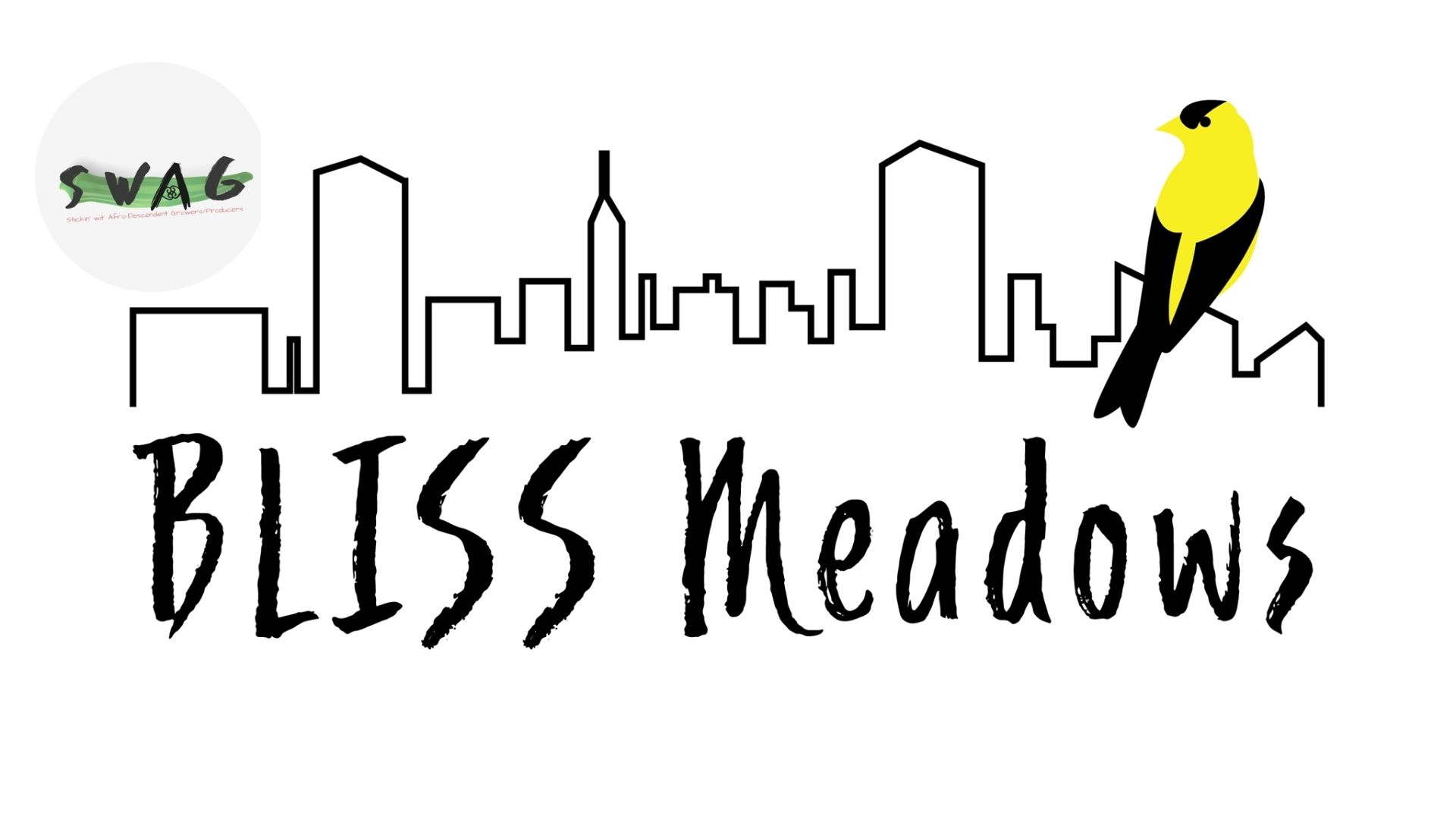
SWAG: BLISS Meadows
Originally Published: January 2021 For this month’s S.W.A.G. spotlight we want to shed light on the work of Atiya Wells and Jordan Bethea of BLISS Meadows. Wells the Founder and


A Life of Praxis is an autobiography, weaving the life story of BYI founder Brother Eric Jackson with the story of Black Yield Institute. This work celebrates the trials and tribulations of becoming an organizer and how those lessons, in turn, have built our organization.
A Life of Praxis underscores the importance of owning and sharing our stories as tools for liberation.
Pre-order your copy today!

It is with great honor that we announce the first two offerings of our Living Concept Book Series. The objective of this series is to expand the knowledge of key concepts necessary for the struggle toward Black Land and Food Sovereignty.
On Food Apartheid: Seeing the Problem was developed as a teaching tool on the conditions termed as food apartheid. The text delivers perspectives on the sociopolitical phenomena that many food justice and food sovereignty organizers and activists have used to describe the conditions of rural, peri-urban, and urban people who experience food and land disparities rooted in race and class.
On Food Apartheid aims to broaden understanding through historical and contemporary examples of the nuances of food apartheid. The book also aims to engender curiosity and further action in addressing food apartheid in places where it should not exist. The author promises to engage readers through engrossing analyses of the underpinnings of the power imbalances characterized by food apartheid while making a compelling argument for moving away from simple understandings of mere unhealthy food access.
In this third title by the author, Eric Jackson adds to Black Yield Institute’s body of work. On Black Land and Food Sovereignty: Projecting the Solution seeks to stake the claim that Black Land & Food Sovereignty (a movement building and freedom establishment framework) is a viable pathway to address the insidious nature of ‘food apartheid’ (which is explored in On Food Apartheid: Seeing the Problem).
On Black Land and Food Sovereignty is an instructional mini-book that seeks to help readers develop and ground themselves in pathways that change food environments and food systems by restoring and establishing power. The text looks at historical examples and seeks to define both conceptually and operationally how this movement framework can exist.
Admittedly, the author aims to percolate and stimulate thought that would help people move to action toward the aim of building community power and establishing sovereignty through food and land.

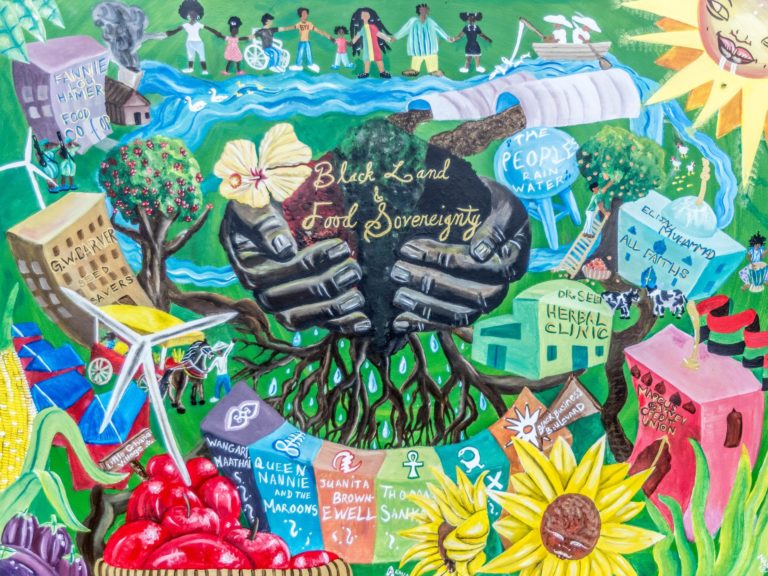
“We Got 5 On It is a five-year look at the impact of Black Yield Institute with a focus on the developmental years of 2015 to 2020.”
An excerpt from We Got 5 On It
Black Yield Institute has been developed with a clear aim and focus since the beginning of our work in November 2015. November marks the birthday of our institution and in the spirit of celebration we are excited to announce that we are releasing our first multi-year report, We Got 5 On It. The report serves as a document that attempts to highlight the evolution of our work from 2015 to 2020. However, we also aspire to inspire further organizational development in service to Black Land & Food Sovereignty. The report is a labor of love that motivates us to continue our work for many more years. Learn about how and why we have been able to build our institution since our inception and learn the spotlights over the past two full years of operations. Enjoy the illustrative storytelling that shares a tale from idea to seed to fulfillment. Many jewels and gems are found within the pages of We Got 5 On It. We recommend studying this document, not merely read the contents, and we invite people to ask questions. Black Yield Institute has a story to tell and here it is.
Keep the Flame!
Black Yield Institute is a Pan-African power institution based in Baltimore, Maryland, serving as a think tank and collective action network that addresses food apartheid.
Since our beginning in November 2015, we have worked collaboratively with black people and entities, along with other institutions, in pursuit of Black land and food sovereignty. We are to build independent power by establishing an action network and serving as an incubator for ideas and projects. We are unapologetically a Black-led institution, utilizing Afrocentric, Pan-African, and human rights frameworks to anchor our thought and works toward liberation through food.
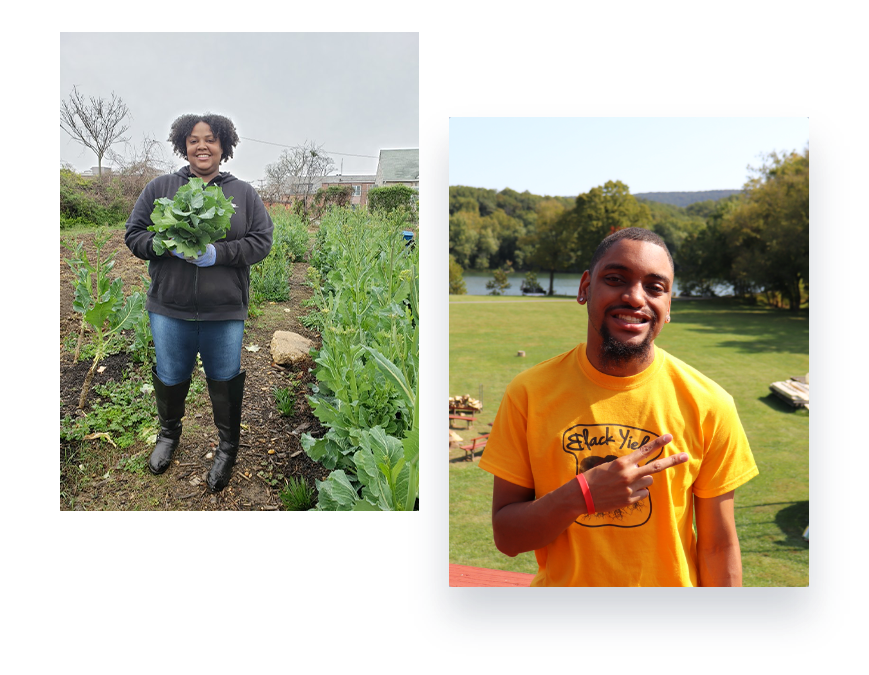

Donate today!

The Cherry Hill Market is an opportunity for Black Yield to sell produce sourced from Cherry Hill Urban Community Garden to community members at reasonable prices. This is also a space for local vendors to sell goods to the community.

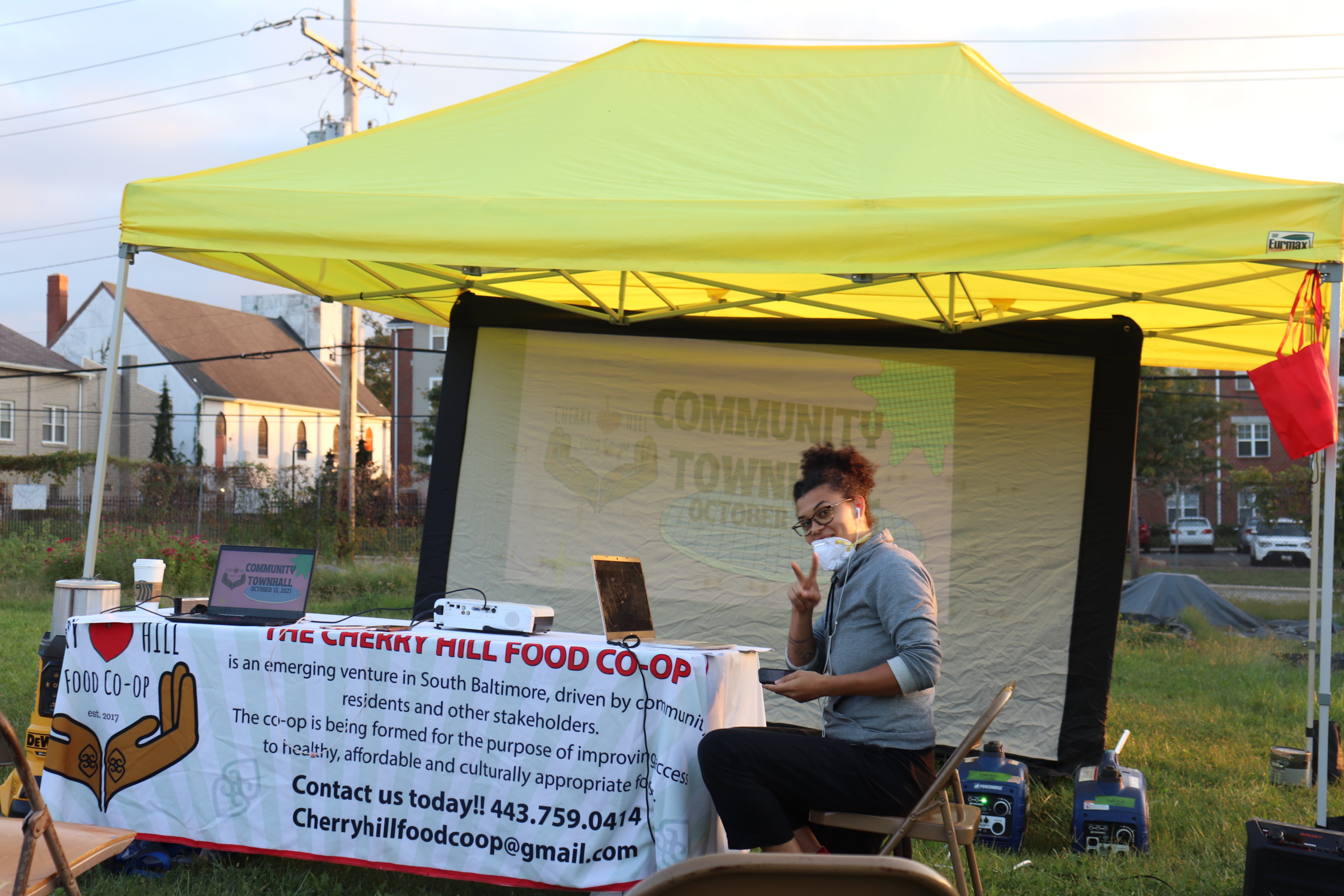



Originally Published: January 2021 For this month’s S.W.A.G. spotlight we want to shed light on the work of Atiya Wells and Jordan Bethea of BLISS Meadows. Wells the Founder and
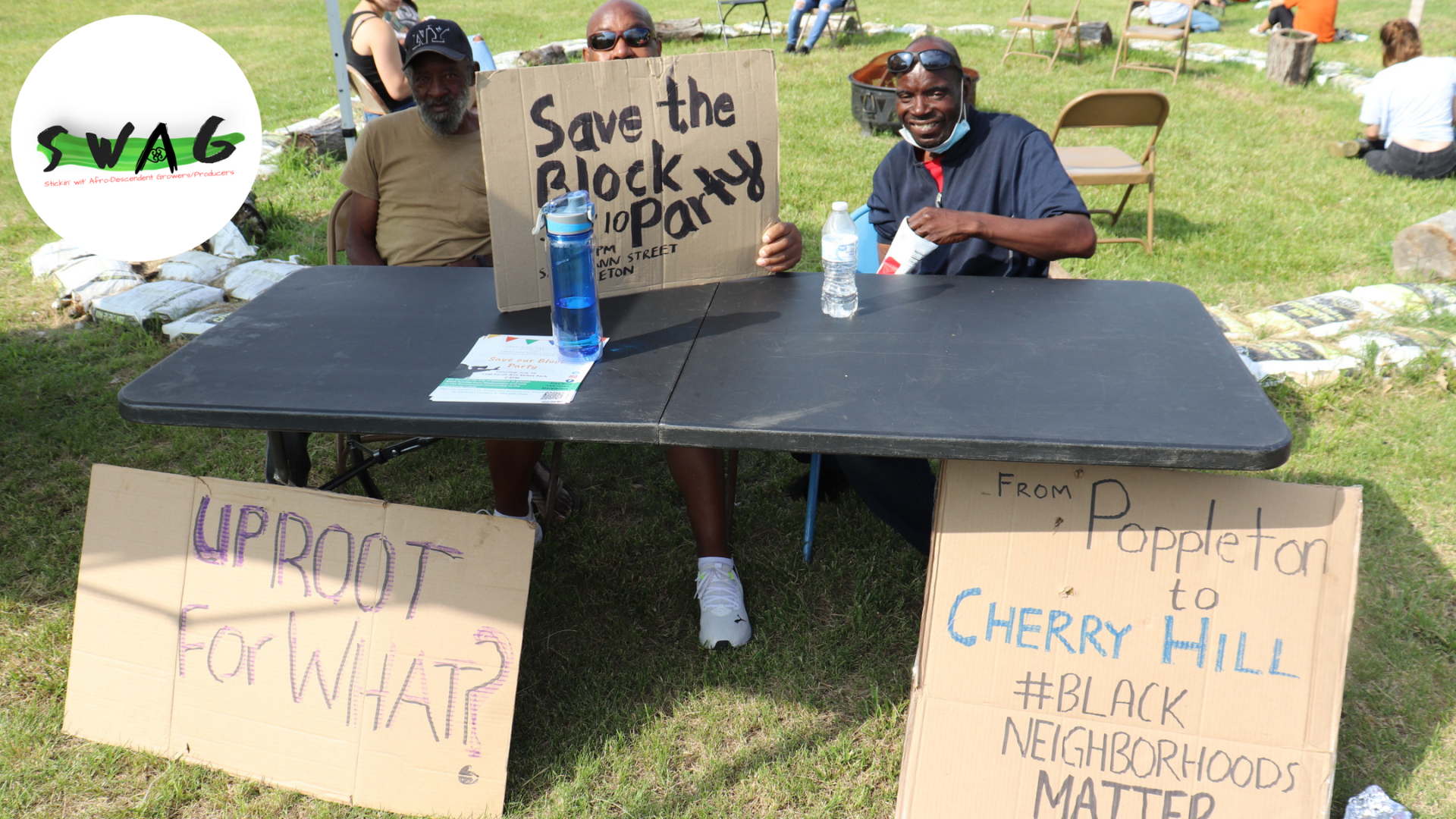
Originally published August 2021. If you attended last month’s Grand Harvest Rally there’s a good chance that you saw the gentlemen in the photograph above. They were in attendance in
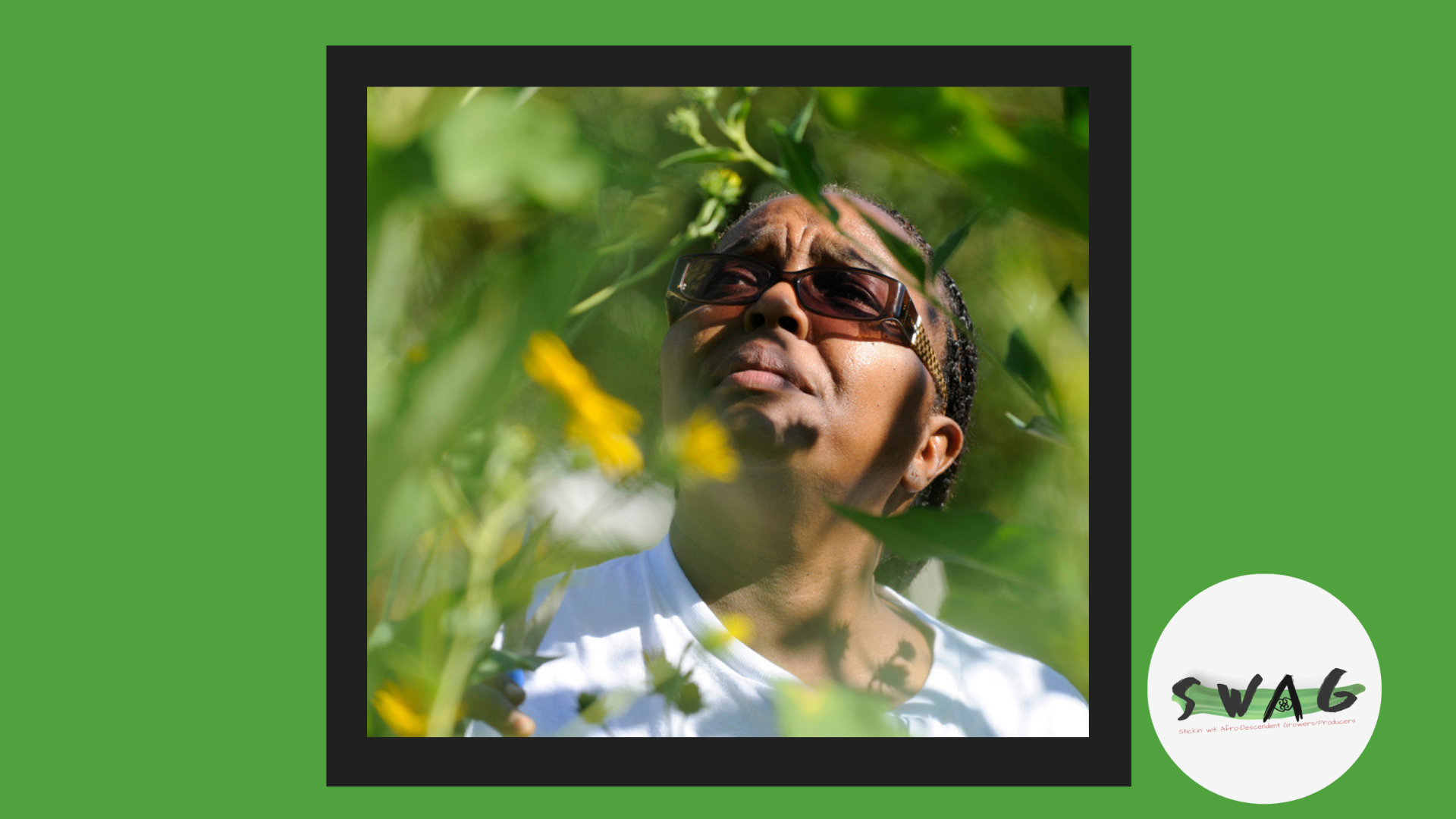
Originally published: March 2021 For this month’s S.W.A.G. spotlight we want to highlight Rodette Jones, Farm Manager of the Filbert Street Garden in South Baltimore. It’s not often that one goes